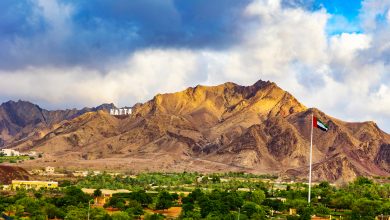The UAE’s federal government will soon be joining the rest of the world in the traditional weekend schedule of Saturdays and Sundays, as part of the country’s effort to align the economy with global markets.
From January 1, 2022, the UAE will become the first country in the world to fully implement a shortened workweek of 4½ days. Several countries have started to experiment this such as Iceland, New Zealand, Spain and Japan, but the policy remains in a pilot run. However, their experiments reported very promising results.
As for the timing, there will be working regular shifts from Mondays to Thursdays and a half-day work on Fridays.
This transition will align UAE’s economic transactions with the schedules of most non-Arab countries including the Philippines.
However, this isn’t the first time that the UAE led the GCC in the workweek transition. In 2006, the UAE spearheaded changes in the Gulf’s weekend from Thursday and Friday to Friday and Saturday. This was followed by Saudi Arabia seven years later, in 2013 and was adopted by the majority of the Gulf.
His Excellency Dr. Abdulrahman Al Awar, Minister of Human Resources and Emiratization, stated that the transition of the UAE to work with a similar weekend with the rest of the world will help make the country’s labor market more competitive and boost productivity levels.
“The new system will reposition the labor market as a global market and a key driver of the national economy. This will reflect positively on the workers in various business sectors and lead to increased productivity,” said Al Awar.
Private sector compliance
The MOHRE highlighted that private companies and establishments will have to amend internal rules and regulations to tailor fit to their requirements with the new working week. Should private companies follow the new weekend, the ministry is also optimistic that this would help establish continuity especially for UAE-based companies who deal with companies all around the globe.
“It will eliminate the weekend gap – and it was a much longer gap in the past. It will allow more business and exchange of trade with the world economy,” said Al Awar.
Al Awar also stated that starting from February 2, 2022, the new decree law for labor relations stresses that all workers must be entitled to at least one paid weekly rest day, which should be specified in the employment contract. The number of weekly rest days may be increased at the discretion of the employer, or through a new cabinet resolution.
MOHRE also highlighted the need to provide break times for employees to perform their Friday prayers, should the private sector decide to continue working for the full day. Government regulations have specified that Friday prayers and sermons in the UAE will be held after 1:15 p.m. all year round. It is for this same reason why federal government employees are allowed to work from home on Fridays, depending on the agreements and approvals.
New transition
The sweeping changes in the UAE’s weekend drew in mixed reactions from OFWs, seeing that the initial announcements only pertained to the public sector.
Brandon Mijares from Dubai said that the new weekend will be beneficial for him since it would follow the same schedules as the Philippines’ which means more bonding time with loved ones back home.
“Parang nasa Pilipinas lang tayo – more time for family,” said Mijares.
Abigail Mercado from Sharjah thanked the UAE for the shift in the weekend schedules, hoping that her employer would also follow so that she could attend the Sunday morning mass which she hasn’t done in years.
“Mararanasan na natin muli yung pakiramdam na nakapagmisa ng Linggo ng umaga, katulad nung nasa Pilipinas pa tayo kasama ang ating pamilya,” said Mercado.
Lorna Dimalanta from Dubai hopes that employees like herself who work in the household would also benefit from the new schedule.
“Sana hindi lang public sector. Sana pati kaming mga nag-w-work sa bahay makinabang,” said Dimalanta.
A study in Iceland likewise highlighted that employees who had a four-day workweek were more productive and happier.
Will Stronge, director of research at the think tank Autonomy, underscored that the Iceland study revealed that the practice became beneficial for both employers and employees.
“There are many examples emerging within the private sector of 4-day week best practice. Celebrating these cases, whilst encouraging others to adopt, will be important as public authorities and trade unions make the case for working time reduction,” said Stronge in an interview with Washington Post.




